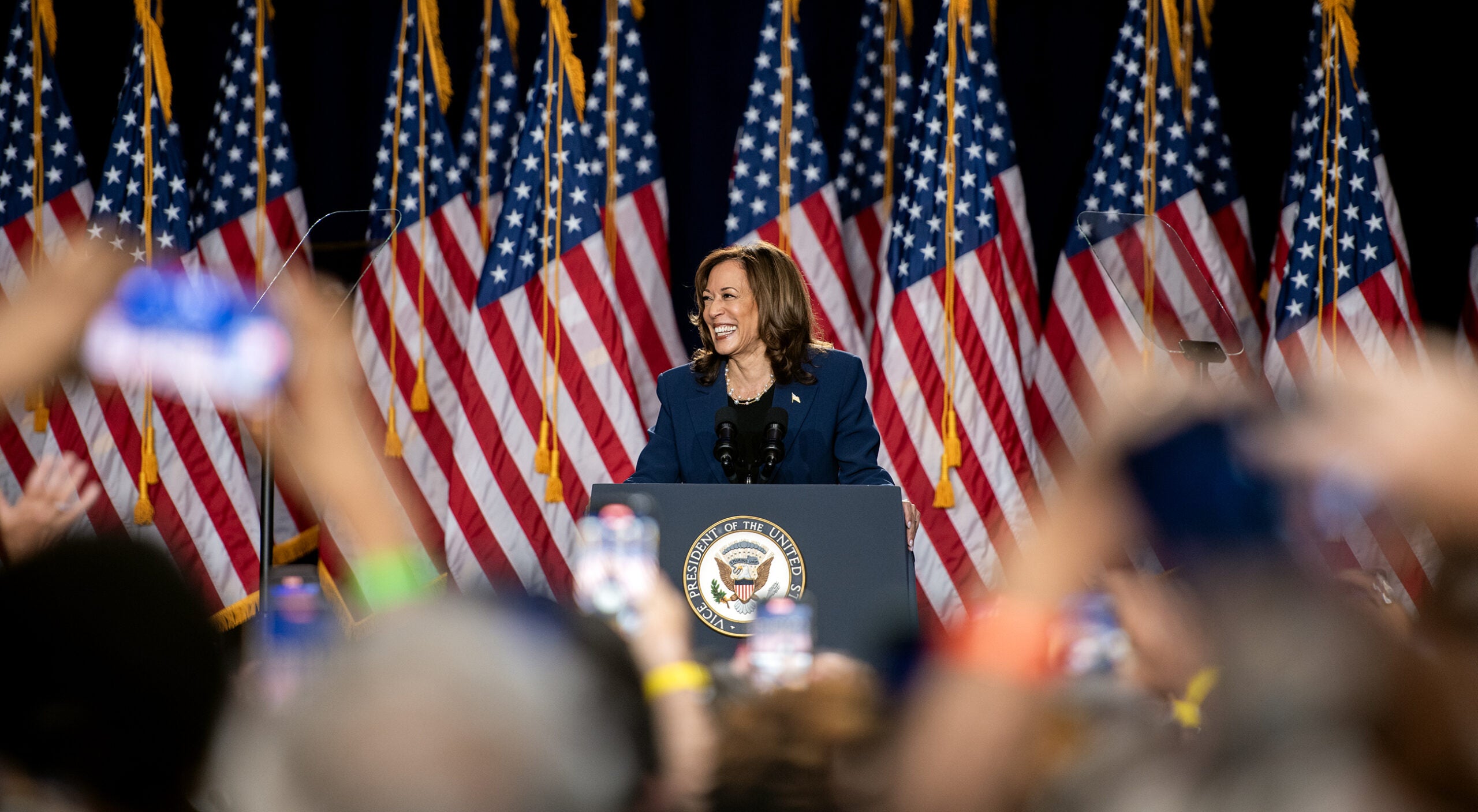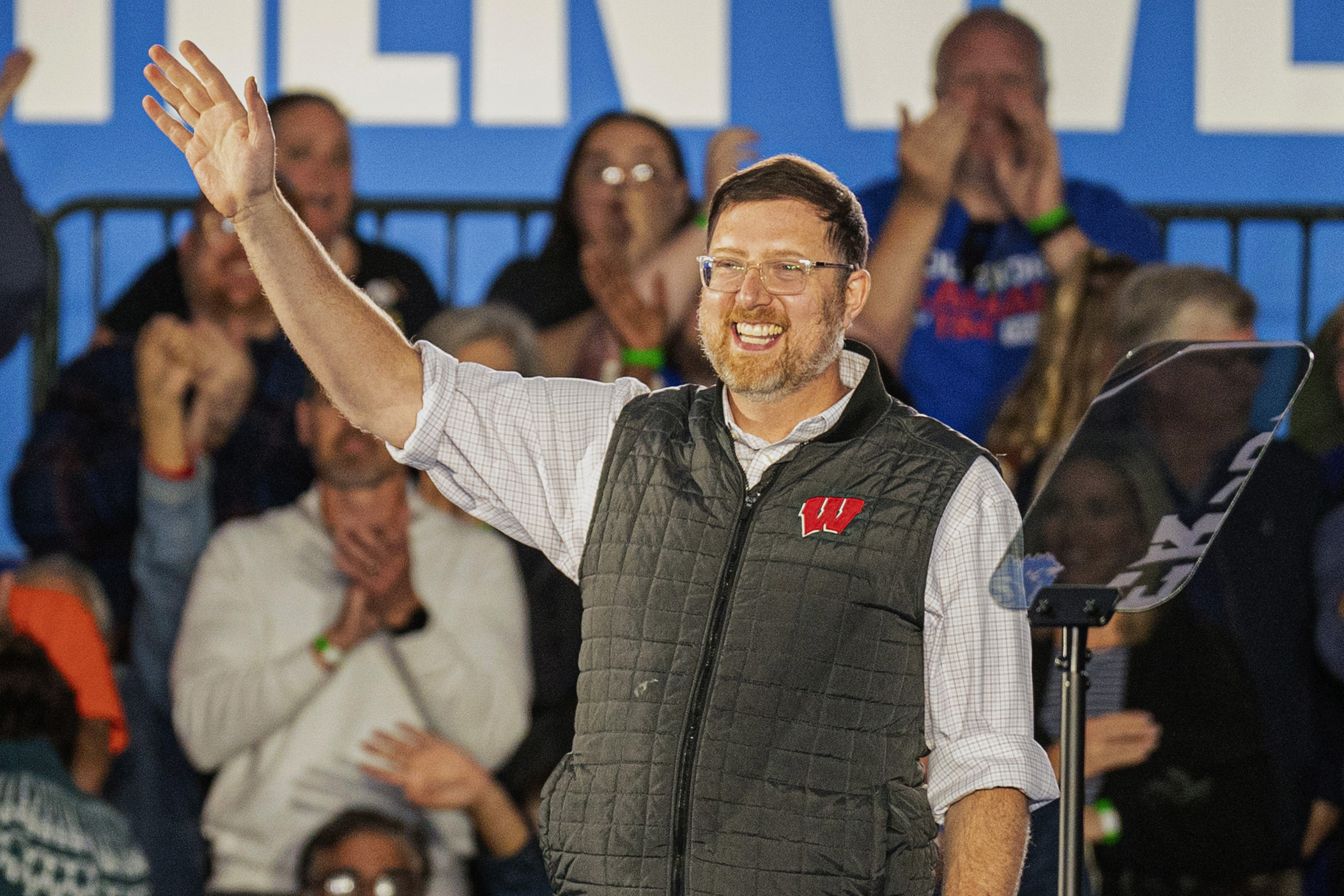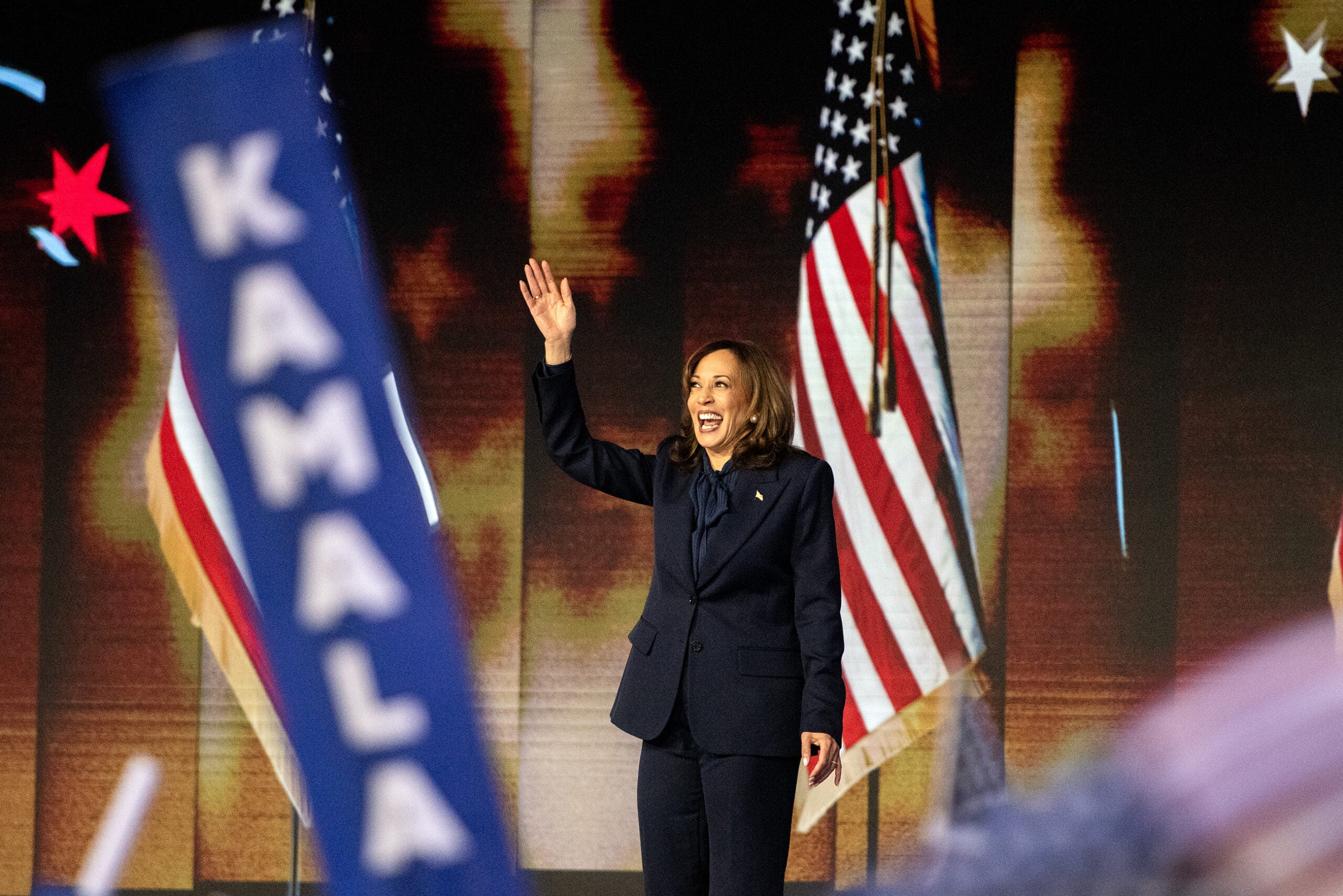Vice President Kamala Harris was in West Allis ON Tuesday for her first presidential campaign event since President Joe Biden announced on Sunday that he was dropping out of the race.
University of Wisconsin-Madison political scientist and elections expert Barry Burden said the choice of Wisconsin for this rally and the timing — immediately following the Republican National Convention in Milwaukee last week — continue to prove the state is “the center of the political universe this election year.”
Burden told “Wisconsin Today” that the last couple of days have been “a roller coaster ride.”
Stay informed on the latest news
Sign up for WPR’s email newsletter.
“Just last Thursday, Republicans were on top of the political world,” Burden said. “Trump had given his acceptance speech, he’d chosen JD Vance as a running mate. He was four days, five days out from an assassination attempt, on top of the polls.”
Burden continued saying he expected to see new polls this week, coming out of the RNC, that would show Trump widening a lead over Biden.
“But Biden’s departure from the race and Harris taking his place essentially has really reset the campaign,” said Burden. “And I think we’re in for a different kind of experience the next 100 days than we have been for the past few months.”
Burden talked with “Wisconsin Today” about what happens next in the Democratic nominating process, and some of the legal and procedural challenges Republicans have already talked about mounting around the switch from Biden to Harris.
The following interview has been edited for brevity and clarity.
Lee Rayburn: The Vice President is not the Democratic nominee yet, though some have started to employ “presumptive” when talking about Harris. What should we know about the party’s rules for making this official?
Barry Burden: There’s a lot of misunderstanding out there about what the primaries do and did, and whether Biden is being pulled off the ballot and his name being replaced. Biden was never on the ballot. He’s not the nominee of the party, and he was never the nominee of the party in 2024. He was the only guy who really won any delegates this year because most of the primaries and processes were uncontested, and most of the delegates who were selected in those processes were loyal to Biden as leader of the party. But they had not actually voted on a nominee.
The rules of the Democratic National Convention are that the delegates — about 4,000 people from the states, in D.C. and the territories — come together and choose a nominee, and the way you become the nominee of the party is to win a majority of the delegates. They have not yet voted for Biden or anyone else.
The delegates will meet, probably online, and then again in person in Chicago, to do a roll call vote. My guess is that Harris will win the overwhelming majority. And it’s only then that she becomes the nominee and can be slotted into the state ballots, starting in late August or early September.
LL: How could another Democratic candidate challenge Kamala Harris at this point?
BB: The DNC rules do allow for it. What has to happen is a candidate has to agree to run, then the delegates supporting that person need to circulate positions and gather at least 300 signatures of the delegates. It’s a little less than ten percent of delegates that would need to sign on.
It would be a big move for another Democrat, a prominent Democrat, to try to challenge Harris at this point. Those delegates would really be putting their reputations and their necks on the line to sign a petition publicly for a candidate other than Harris. It’s allowed by the rules, but I think the party has circled its wagons sufficiently, so it’s unlikely that she’ll be challenged.
LR: Republican House Speaker Mike Johnson has questioned the legality of Democrats replacing President Biden with Harris, and says it might disenfranchise primary voters who have already cast their ballots. What do you make of this argument?
BB: This is something that parties do. They challenge one another, even if they aren’t on good legal grounds. It puts the other party on the defensive and raises some questions about what they’re doing. Johnson and Republicans have also questioned whether Harris can inherit the campaign money that Biden and Harris have collected over the past some months. I don’t think either one of those legal challenges is going to be successful.
In terms of state ballots, the deadlines have not passed yet. All of the states essentially accept whoever the Democrats choose as their nominee at the convention. There will be some disgruntled Democrats who were really enthusiastic about Biden and voted for him in the primary, and are now sad to see him step aside. But those delegates were never really bound to him. They were only pledged in a kind of fidelity to him. But now that he has stepped aside and released his delegates, they’re free to do what they want.





